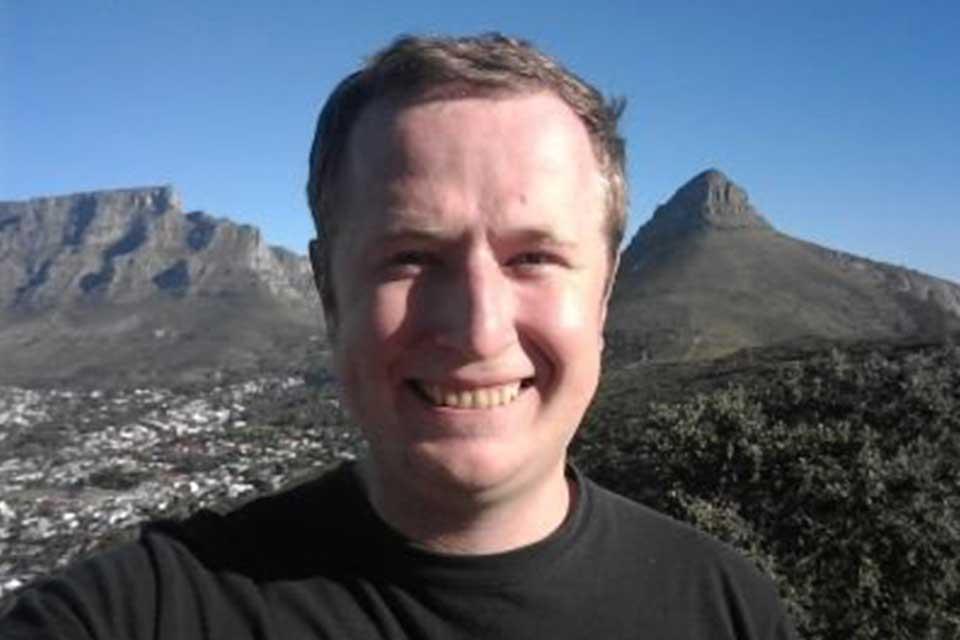We work among extraordinary people doing extraordinary things; get to know some of them by reading these quick-fire interviews.
Name: Peter Hatfield
Job title: Hintze Research Fellow
What are you currently working on?
I am currently working on using machine learning to calculate the redshifts of millions of galaxies. Redshifts correspond to how far away a galaxy is, and because of how long it takes light to reach us, also how far back in time it is – so we can track how galaxies change over the whole history of the Universe!
Describe a typical day
For my science I do three main things: i) working on my research – mainly coding and writing up results, ii) listening to talks to hear about the fascinating work being done by colleagues both in Oxford and around the world, iii) writing grant proposals!
I also do a lot of public engagement work, doing research projects with secondary schools – for which I was honoured to recently receive an MPLS Impact Award! This has been through the Institute for Research in Schools, IRIS, which develops opportunities for secondary students to participate in authentic research in school. Through this I have organised a range of schools projects that let students carry out real research using data from Oxford University projects. Students have gained Extended Project Qualifications using data from the Oxford European Southern Observatory VIDEO galaxy survey (using a telescope in Chile), used data studying the creation of matter from light (photons “colliding” to create electrons and positrons) and even published a scientific paper using data from a radiation monitor in orbit! See Furnell et al., 2019, https://ui.adsabs.harvard.edu/abs/2019AdSpR..63.1523F/abstract.
Beyond work with schools, in physics we also just had a very successful department engagement event in University Parks – our first in-person event in around 18 months! We had a scale model of the Solar System and members of the public could fill out a passport by visiting every planet and learning about what makes each planet unique.
If you had an entire day at your disposal (not at work), what would be your ideal way to spend it?
I would go to London, go to some museums and parks during the day, and then pubs with friends in the evening.
What is your favourite place in Oxford?
It’s not a single place, but I really like all the beating of the bounds markers around the city. On Ascension Day churches and colleges in the city go on a procession and 'tap' the boundaries of their parishes, a tradition that used to be done across the country. There are very subtle markings (including one on the floor in Marks and Spencer!) that show the way and feel like a secret trail around the city the rest of the year.
Plan B: what would you be if you weren’t doing the job you are currently doing?
I think working in government would be interesting – perhaps the Department for Business, Energy and Industrial Strategy? I enjoy working across a broad range of science areas, so it would be an interesting opportunity to be exposed to everything scientific happening across the country.

